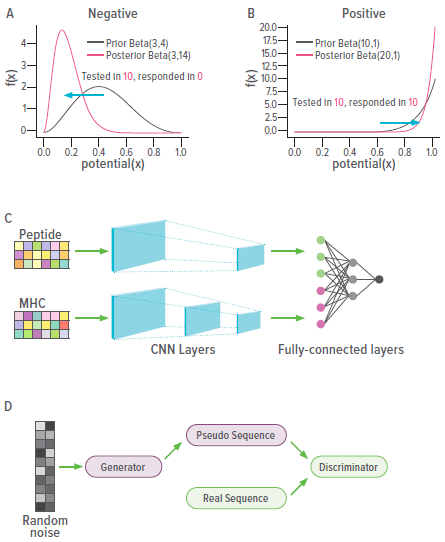Deep Learning Tool Helps Create Custom T-Cell Vaccines
Published May 2021 | Briefings in Bioinformatics
Immunotherapies offer promising avenues for treating cancer and other diseases, including infection by deadly viruses such as SARS-CoV-2 (COVID-19). These strategies include vaccines that work by harnessing and reprogramming an individual’s own immune system to find and target specific peptides (protein fragments exposed on the surface of a cell).
A significant challenge in the creation of new vaccines is predicting which peptides—among potentially hundreds of thousands—will elicit an immune response. To address this challenge, investigators from three laboratories (Ni, Prasath, and Salomonis) in the Division of Biomedical Informatics designed a new artificial intelligence approach called DeepImmuno to dramatically improve such predictions.
Researchers used real-world datasets to test and evaluate DeepImmuno. They found that the tool’s convolutional neural networks (CNN)—deep learning algorithms—outperformed existing methods to improve the prediction of which prior validated cancer or COVID-19 peptides will mount an immune response.
Extending this approach, lead author Guangyuan (Frank) Li created a new way to simulate novel peptides that do not exist in nature, but are likely to induce an immune response, using a method called generative adversarial networks (GANs).
The applications of these approaches are potentially far-reaching, as they could be used to help drive synthetic biological approaches to design new treatments for diseases without existing therapies. To aid in these discoveries, DeepImmuno is available as a free, easy-to-use web interface for the genomics community.
DeepImmuno

In DeepImmuno, to assess the probability that a given antigen is immunogenic, variable peptide immunogenic potential is computed by sampling from a posterior beta distribution of well-defined truepositive and true-negative immunogenic antigens to produce a continuous immunogenic score.




